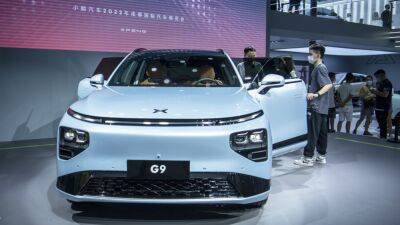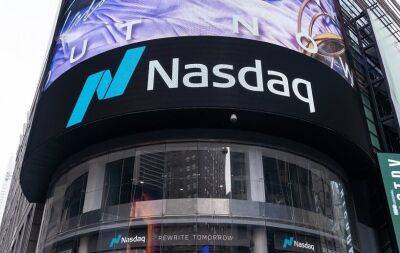China's electric car firms, which rely heavily on Nvidia, are safe from the U.S. chip ban — for now
BEIJING — U.S. restrictions on Nvidia chip sales to China won't affect Chinese electric car companies, as they're using auto systems that don't include the sanctioned products.
Chipmaker Nvidia's shares have plunged around 13% this week after the company disclosed new U.S. restrictions on its exports to China, affecting about $400 million in potential sales in the current quarter.
In China, the Nvidia Drive Orin chip has become a core part of electric automakers' assisted driving tech. These semi-autonomous driving systems are an important selling point for the companies in what has become a fiercely competitive market in China. Some automakers are also using Nvidia's Xavier chip. Automotive is a relatively small but fast-growing part of Nvidia's business.
However, the new U.S. restrictions target Nvidia's A100 and H100 products — and these chips' sales are part of the company's far larger data center business. The products are graphics processors that can be used for artificial intelligence.
«There shouldn't be any restrictions on Xavier and Orin, and Xpeng, Nio and others would continue to ship with those chips,» said Bevin Jacob, partner at Shanghai-based investment and consulting firm Automobility.
Jacob, however, did warn that there could be «close scrutiny» in the future on U.S. firms shipping chips relating to artificial intelligence and autonomous driving to China.
Xpeng declined to comment. Nio, Li Auto, Huawei and Jidu — a new electric vehicle brand backed by Baidu and Geely — did not respond to requests for comment.
The new U.S. rules are designed to reduce the risk of supporting the Chinese military, according to the U.S. government, Nvidia said in its filing with the Securities and Exchange Commission on
Read more on cnbc.com

 cnbc.com
cnbc.com



















